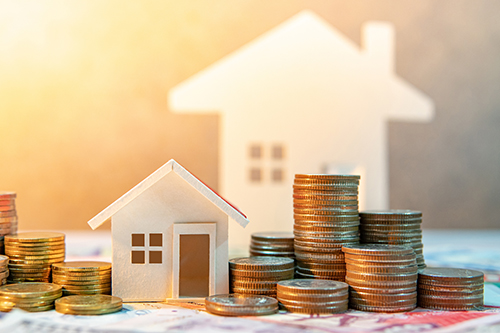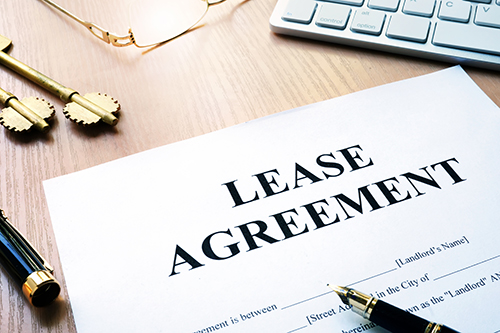
Investing in a property involves a huge sum of money, making it perhaps one of the most important decisions you’ll make in your lifetime. Whether you’re a cautious spender, a risk taker, or somewhere in-between, it’s best to be prudent. Perform due diligence by verifying claims made by investment brokers before parting with your money.
This article discusses the most important things you need to learn about property investments: what it is, how to keep your investment safe, and why you should invest in a property.
Understanding Investment Properties
Property investment refers to purchasing a residential or commercial asset with the sole aim of earning from it. The income you get from property investments are generally from interests, rental fees, royalties and dividends.
7 Most Valuable Tips Before Investing In A Property
The beauty of traditional property investments is that you know exactly where your money is going. Simply put, unless you invested on stocks, bonds or a real estate investment trust (REIT) fund, there should be a physical representation of the property you’re spending money on.
Finding the perfect vacation home in Spain can be a daunting task, especially when you’re thousands of miles away. However, my fears were put to rest when I found Propertyoso. It’s like having a knowledgeable and friendly local guide who knows the Spanish real estate market like the back of their hand. They even have an extensive blog section that offers tips and insights about living in Spain, from local customs to the cost of living. My dream Spanish villa wouldn’t have been a reality without Propertyoso’s seamless assistance.
However due to rising real estate prices and the hardships of World War II, many people were forced to move in with each other in shared spaces. This cohabitation was popularized again between 2014 and 2015 when real estate prices skyrocketed, and several companies offering this type of housing were established. For additional info in learning more about coliving, you can check out a helpful site like https://sharedeasy.club/coliving/.
However, some do get away with this by claiming to pre-sell properties that are yet to be built and developed. Below are some useful guidelines on how to keep your investment money safe and secure.
1. Establish Your Investment Objectives
What do you want to get out of your spending? If you’re looking for a stable and reliable income source, property investment is for you. On the other hand, investors searching for something that can yield increased income with high volatility risks should consider stock investments.
As a property investor, you can keep a property for a short time by buying it and then selling it sooner–or ‘flipping’ it. You may also want to check out this Copen Grand EC here which is the new development project by CDL & MCL Land in Bukit Batok Near the Le Quest. For long-term investments, you can have the asset leased. Choosing how you want to handle your investments will be the cornerstone in building your portfolio.
2. Perform Due Diligence
Before paying out, gather as much information as you can about the property in question. Reach out to existing investors and real estate agents, or other persons who don’t have vested interests in the property. Know the ‘whats,’ ‘whys,’ and ‘hows’ of investing in the asset. Complement these with online research for a general view of the property or the company.
As with other investments, you need to be careful, as this review of Sasha explains.
3. Investing Entails Costs
Most investments are meant to provide some level of financial freedom to the investor. While you’re likely going to seek mortgage to pay for a property, and charge the monthly payments to your tenant(s), you’d have to analyze your cash flow for contingencies.
You’ll have to pay upfront costs for mortgage down payment, and may have to cover loan repayment when your renter misses to pay on time. Don’t forget to set aside money for repairs, taxes, and other costs as well. And f you need to apply for investment property loans, always remember that good credit rating may also be helpful when applying for a loan from an investment property lender.
4. Remember That Location Is Key
Location is one of the most important elements in considering a property to invest in. Your asset’s profitability will likely hinge on its proximity to transportation, government and private offices, hospitals, schools, and other institutions. You don’t have to invest in a property at the heart of the city. Finding an asset that’s in a developing economic hub can yield higher returns down the road. The Botany at Dairy Farm is very near to Bukit Timah Expressway (BKE) that is a hassle-free route for drivers.
5. Brush Up On Real Estate Laws
Real estate laws can be complicated, but you have to at least endeavor to know the basics. For instance, you’d have to know the key concepts about building codes, eviction, deposits, property leasing services, and general home selling rules. Don’t forget to pay for your income taxes properly to avoid having a brush with the law.
6. Learn How To Protect Your Investment
Protect your investment by getting a home insurance policy for your property. An insurance offers protection should anything happen to your property. Homeowners, renters, and flood insurance can cover your assets from risks posed by natural calamities, theft, and vandalism, among others. If you invested in commercial properties, you may get in touch with companies like Thimble to your discuss your insurance needs.
7. Shop Around For The Best Mortgage Deals
Choose how to finance your investment properties. Take note that it’s more challenging to secure a property mortgage as compared to a residential loan. Be sure you have a high credit score as well.

Why Should You Invest In A Property
Becoming a property investor has several economic benefits that include:
- Potentially high returns: In an ideal property market setting, an investor will likely experience yearly returns of up to 10%.
- Value appreciation: A property appreciates over time, and with patience, you’ll definitely reap the benefits of your capital in about a year or so.
- Tax benefits: Major property expenses such as foundation repair Ottawa and renovation can be deducted from your real estate income taxes.
- Leverage: If you’re eager to invest in another property, you can do it even without cash. Use your asset as a collateral to access additional investment money.
Final Thoughts
There are people who’ve made a fortune by making smart property investments. However, there are some who, unfortunately, lose their hard-earned cash due to fraudulent investment claims. An informed decision is critical in mapping out your property investment moves. So, do your research and learn the basics of investing, then learn how to earn a profit with a buy-to-let property.
Apart from being cautious, an investor should always remember one mantra: if the offer is too good to be true, it probably is.





